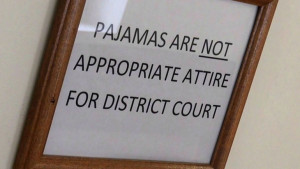 Remember Cinderella’s step-mom? “Light the fire! Fix the breakfast! Wash the dishes! Do the mopping! And the cleaning and the shopping!”* She was not the kind of step-parent a child would ever want. She was the original “step-monster”.
Remember Cinderella’s step-mom? “Light the fire! Fix the breakfast! Wash the dishes! Do the mopping! And the cleaning and the shopping!”* She was not the kind of step-parent a child would ever want. She was the original “step-monster”.
I’m a step-parent, but to grown adult children with children of their own. But whether the children are very small or are adults on their own, there is no tried-and-true manual for step-parents to “fit” into the new family dynamic. After all, each family is unique with their own way of doing things, patterns of communication, and traditions. And, maybe the step-parent is not entirely welcome, especially if the “original parent” feels replaced, angry, jealous, and/or threatened and communicates this directly or indirectly to the child(ren).
Nothing could be worse for your children. Several years ago, a woman I know, I’ll call her “Linda”, met her former spouse’s new fiancé. Sadly, Linda took most every opportunity to criticize and be nasty to the fiancé. She would not listen to reason nor dignity. Her child marinated daily in Linda’s hatred for the fiancé.
The fiancé appeared to love the child. She attended the child’s events at school, church and gymnastics. She sent her home with treats, bought her clothes, and otherwise demonstrated her attachment to the child. The child wanted to love the step-mom but Linda sabotaged it in every possible way. Linda mocked the clothes as being tasteless, ill-fitting, and or “cheap”. She threw away the treats in front of the child. She refused to speak to the fiancé at school and other events. The child suffered from all the stress and became very anxious whenever the fiancé was mentioned or was around Linda. The child was not free to form an emotional bond with the fiancé and that relationship suffered.
The child’s father was no “winner”. Having been previously granted only supervised visitation, his ability to properly care for the child was in question. Linda utterly failed to grasp that the fiancé could ensure the child’s well-being during the father’s parenting time. We encouraged Linda to make an ally of the fiancé and at least try to co-parent with her but Linda refused. The fiancé became the step-mom. Eventually, the new step-mom gave up trying to be friendly to Linda and joined her new husband in the ongoing war between the parents. The child suffered and exhibited signs of emotional distress and anxiety as a result of the adult’s antics.
Don’t be “Linda”. Love your child more than you hate their step-parent.
So, what do you do when the step-mom / step-dad appears? To be direct, you do not have a right to prevent your child’s other parent from dating or remarrying. They have all the same rights as you do to live a full life – and that includes dating and or remarrying.
So, it is time for a little introspection.
First, do you welcome a step-parent in your child’s life? If not, why not? Be specific. Write it down. Odds are if you are unable to lay out the “why” on paper, it may be more of an emotional reason than a rational one. Note, it is not enough that you “just don’t want someone else in the child’s life”. If that is the only thing you can come up with, take a breath and put on your adult pants. Life moves forward whether we want it to or not. Adulting is not always easy, but it is what we are called to do once we have children. Put your children first before your own jealousy or insecurity.
Second, take inventory of your emotions. Are you angry? Jealous? Threatened? And, if so, why? Are these emotions something you want your child to marinate in? Even if you don’t openly verbalize your unhappiness about the step-parent, your child will still pick up on the non-verbal cues. Keep adult emotions and feelings away from the kids. They can’t fix it and the are very sensitive to the emotional well-being of the hand that rocks the cradle. In short, keep the kids out of it.
Third, is it the thought of your calling someone else “Mommy” or “Daddy”? Please know, if you seek to maintain your place in that child’s life and take care of your obligations as a parent financially and emotionally, there is no reason why you won’t remain “Mommy/Daddy”. Yes, seeing your child get attached to a new dating partner can be hard (Divorced and Dating with Kids is the subject of another article). But, by creating and maintaining a respectful relationship with the new step-parent, you will know someone is ensuring your child’s well-being when you are not there, and that peace of mind is priceless.
Fourth, do you believe the step-parent is in any way a threat to the safety and well-being of your child? Does he or she have a history of drug use? Violence? High risk activities? Child molestation? Alcoholism? Criminal activity? If you have any of these concerns, then stop reading and call your attorney right now. The “best interests” of the child is the gold standard in parenting time allocation. If that person represents a danger to the child, you are not over reacting. You need to speak up to protect your child from someone who represents a potential danger to them.
Our hope is that your co-parent will be respectful and reasonable in how they handle introducing the new spouse into the family. Remember, it is not always the easiest task for the parents, step-parent or the child. Show each other some grace and give it some time. Take it slow. Open a dialogue with your co-parent about any concerns you have and collaborate – don’t try to dictate. Who they date or marry is not your decision. Yes, your child is involved but again, your ex has every right to move on in his or her life – just as you do. Collaboration with your co-parent will ease the transition and promote the well-being of your child.
Life evolves. You will want the same considerations when you fall in love again and or remarry. The shoe, or the glass slipper, will be on the other foot if it hasn’t been already, and you could be the step-monster, I mean step-mom.
Good luck!
*from Cinderella’s, “The Work Song” Continue reading

 We frequently receive questions from people that are either in the process of divorce or are soon to begin a divorce. We have decided to share some of those questions and answers here for those of you that may benefit from this information.
We frequently receive questions from people that are either in the process of divorce or are soon to begin a divorce. We have decided to share some of those questions and answers here for those of you that may benefit from this information.
 People are not always…. uh, forth coming about past marriages and especially the divorce(s). If you have assets or children to protect, a little caution can go a long way towards protecting both your finances and your heart.
People are not always…. uh, forth coming about past marriages and especially the divorce(s). If you have assets or children to protect, a little caution can go a long way towards protecting both your finances and your heart. Can you take your cell phone into court? Maybe. Maybe not. In Wilson County, Tennessee? Definitely not. Upon approach, you will see multiple signs announcing cell phones or other recording devices were banned from the building.
Can you take your cell phone into court? Maybe. Maybe not. In Wilson County, Tennessee? Definitely not. Upon approach, you will see multiple signs announcing cell phones or other recording devices were banned from the building.
 If you are reading this, you likely have an upcoming court date and aren’t sure how things work – including what to wear.
If you are reading this, you likely have an upcoming court date and aren’t sure how things work – including what to wear. A Clerk of Court in Pennsylvania recently had signs posted in the court room indicating that pajamas are not appropriate court attire. Really! Pajamas! You would think that would be obvious “what not to wear” but clearly, in that courtroom, it had happened one too many times.
A Clerk of Court in Pennsylvania recently had signs posted in the court room indicating that pajamas are not appropriate court attire. Really! Pajamas! You would think that would be obvious “what not to wear” but clearly, in that courtroom, it had happened one too many times.